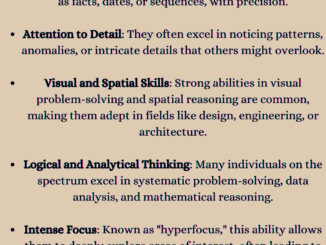
Seeing Through the Fog: Signs of Manipulation in Relationships
Recognizing Manipulation in Relationships
Signs of manipulation in relationships often start subtly, making them difficult to identify initially. Manipulation involves a person exerting undue influence over another to achieve personal gain or control, often at the expense of the other’s well-being.
These tactics may affect a person’s perspective of themselves, their relationships, and the world in general. Persistent manipulation in relationships can impact your self-esteem and may cause symptoms of anxiety or depression.
Understanding the indicators of manipulation is crucial for maintaining healthy and respectful interactions. It’s essential to recognize these signs to protect yourself and take appropriate action.
Remember, manipulation isn’t exclusive to family and romantic relationships; it can also occur in friendships and work-related connections.
Healthy relationships are built on trust, respect, and open communication. But sometimes, one partner might resort to manipulation to control the dynamic. Manipulation can be subtle or blatant, making it difficult to recognize at first. If you’re feeling confused or guilty and not sure why, you could be sensing manipulation. Therefore, if you suspect you’re being manipulated, here’s a guide to help you see the signs.
Deception in Disguise: Signs of Manipulation in a Relationship (General)
We all crave healthy, balanced relationships. But sometimes, manipulation creeps in, creating a dynamic where one partner exerts undue control. This can be incredibly damaging, leaving the manipulated partner feeling confused, drained, and unsure of themselves. Here’s a detailed look at some common manipulation tactics in relationships:
Controlling Behaviors:
- Extreme Jealousy and Possessiveness: A manipulative partner might try to control who you see, where you go, and even what you wear. They might constantly check your phone, accuse you of infidelity without reason, or isolate you from friends and family. Their possessiveness stems from a need to control every aspect of your life.
- Isolating You: They might subtly discourage you from spending time with loved ones. This could involve making passive-aggressive comments about your friends, feigning illness when you have plans, or creating unnecessary drama to keep you at home. Their goal is to make you dependent on them, weakening your support system.
- Setting Unrealistic Expectations: They set unreasonably high standards for your behavior, knowing you’ll likely fall short. This creates a dynamic where you constantly feel like you’re letting them down, making you more susceptible to their manipulation.
Emotional Abuse Tactics:
- Guilt-Tripping: They make you feel responsible for their happiness or unhappiness. They might use phrases like, “If you really loved me, you would…” or “Look what you made me do!” This guilt can cloud your judgment and pressure you to give in to their demands.
- Playing the Victim: They twist situations to make themselves seem like the victim, deflecting blame and gaining sympathy. They might exaggerate your actions or downplay their own wrongdoings, making you feel like the bad guy.
- Gaslighting: This involves manipulating your perception of reality. They might deny saying things, twist events to fit their narrative, or make you question your own memory and sanity. This creates confusion and self-doubt, making you more likely to believe their version of events.
- Passive-Aggressive Behavior: They express negativity indirectly, through sarcasm, sulking, or giving you the silent treatment. This passive-aggressive approach can be confusing and frustrating, making it difficult to have a productive conversation.
Financial Manipulation:
- Controlling Finances: They might control your access to money, make you feel guilty about spending, or pressure you to take on all the financial responsibility. This creates a power imbalance and makes you financially dependent on them.
- Using Money as Leverage: They might threaten to withhold financial support if you don’t comply with their wishes. This financial manipulation can be especially damaging if you have joint accounts or rely on them financially.
Remember, manipulation is about control. By recognizing these signs, you can empower yourself to address the situation and create a healthier, more balanced relationship.
Signs of Manipulative Behavior
- Guilt-tripping: A manipulator might make you feel responsible for their happiness or unhappiness. They might use phrases like, “If you really loved me, you would…”
- Playing the victim: They twist situations to make themselves seem like the victim, deflecting blame and gaining sympathy.
- Emotional blackmail: They threaten to withhold affection, intimacy, or even withdraw from the relationship altogether unless you do what they want.
- Gaslighting: They make you doubt your own memory, perception, or sanity. They might deny saying things or twist events to fit their narrative.
- Passive-aggressive behavior: They express negativity indirectly, through sarcasm, sulking, or giving you the silent treatment.
- Isolation: They try to cut you off from your friends and family, making you more dependent on them.
Signs of Emotional Manipulation in Relationships
- Constant emotional drain: You feel emotionally exhausted after interacting with them.
- Questioning your own feelings: You start doubting your own judgment, emotions, and reality.
- Difficulty expressing yourself: You feel afraid to express your true feelings or opinions for fear of their reaction.
- Walking on eggshells: You constantly feel on guard, trying to avoid upsetting them.
- Loss of self-esteem: Their criticism and negativity chip away at your confidence.
Beyond the Signs: Recognizing the Pattern
Manipulation thrives in secrecy and confusion. Here are some additional signs to look for:
- You feel constantly obligated: You feel pressured to do things you don’t want to do, even if it goes against your values.
- Your needs are neglected: Their needs consistently come before yours, and your feelings are disregarded.
- Apologizing excessively: You find yourself constantly apologizing, even when it’s not your fault.
- Broken boundaries: They constantly push your boundaries and disregard your limits.
- A sense of isolation: You’ve become distant from friends and family due to their influence.
Remember: You are not alone. If you recognize these signs, it’s crucial to address the situation. Here are some resources that can help:
- Talk to a trusted friend or family member.
- Seek professional help from a therapist or counselor.
- Consider couples counseling if you’re open to working on the relationship.
You deserve a relationship built on respect, trust, and open communication. Don’t hesitate to prioritize your well-being and take steps towards a healthier dynamic.
Signs of Being Manipulated
- You feel constantly obligated: You feel pressure to do things you don’t want to do, even if it goes against your values.
- Your needs are neglected: Their needs consistently come before yours, and your feelings are disregarded.
- Apologizing excessively: You find yourself constantly apologizing, even when it’s not your fault.
- Broken boundaries: They constantly push your boundaries and disregard your limits.
- A sense of isolation: You’ve become distant from friends and family due to their influence.
It’s important to remember that manipulation isn’t gender-specific.
Signs of a Manipulative Girlfriend/Wife
The Manipulative Web: Signs to Watch Out For in Girlfriends and Wives
While manipulation can occur in any relationship, some tactics might be more common with girlfriends and wives. Here’s a deeper look at these signs:
-
The Damsel in Distress:
She might use her tears, vulnerability, or feminine wiles to get her way. For example, crying during an argument or using her appearance to gain sympathy: “Would you really say no to me when I look like this?”
-
The Past Hurts Player:
She weaves tales of past traumas or hurts to manipulate your emotions. This could be to gain sympathy, deflect blame, or make you feel obligated to fulfill her wishes.
-
The “Mind Reader”
She expects you to know what she wants without her having to communicate it directly. If you fail to guess her desires, she might get upset, pout, or give you the silent treatment, making you feel responsible for her unhappiness.
-
The Guilt Trip Queen:
Similar to the general manipulation tactic, she might weaponize guilt trips specifically related to traditional gender roles. For instance, she could say, “You don’t help out enough around the house. How can I trust you to be a good husband/partner?” Additionally, she might use phrases like, “A good husband would…” or “I can’t believe you’d forget our anniversary after all I’ve done for you,” to make you feel guilty and obligated to appease her.
-
The Competitive Critic:
She subtly puts down your achievements or compares you to others, creating a sense of inadequacy and making you dependent on her approval.
-
The Social Butterfly with Hidden Agendas:
She might become overly friendly with your friends or family, potentially gossiping or turning them against you to gain control of your social circle.
-
The Financial Puppet Master:
She might use money as a weapon, pressuring you to give her excessive control over finances or using guilt to get you to spend money you don’t have.
-
The Jealousy Charade: Her possessiveness might manifest in unreasonable restrictions on your outings with friends, or constantly accusing you of flirting with other women.
Additionally, pay attention to these behaviors:
- Excessive Neediness: She constantly needs your attention and reassurance, making you feel obligated to be available 24/7.
- Isolating You from Others: She discourages you from spending time with friends and family, especially close female friends who might see through her manipulation.
- Monitoring Your Social Media: She constantly checks your phone or social media, accusing you of flirting or being interested in other people.
It’s important to remember that these are just some examples, and manipulation can be much more nuanced. If you recognize these signs or feel emotionally drained and controlled in your relationship, consider seeking professional help or reaching out to trusted friends and family for support. You deserve a healthy relationship built on mutual respect and open communication.
Signs of a Manipulative Man in a Relationship
The Manipulator in Disguise: Signs in Boyfriends and Husbands
Manipulation isn’t confined to a specific gender. Here’s a breakdown of manipulative behaviors often displayed by men in relationships:
- The Enforcer: He might use his physical strength or dominance to control you. This can create a sense of fear and intimidation, making you hesitant to disagree with him or assert your needs.
- The Financial Puppet Master: He might try to control your finances by making you financially dependent on him. This could involve limiting your access to joint accounts, pressuring you to quit your job, or guilt-tripping you about spending.
- The Ultimatum Giver: He uses threats and ultimatums to get what he wants. This might sound like, “If you don’t [his desire], then I’ll [threat of leaving, withholding affection, etc.].” This creates a stressful and controlling environment.
- The Competitive Boyfriend: He constantly compares you to other women, putting you down to make himself feel superior. This can damage your self-esteem and make you feel insecure.
- The Information Gatekeeper: He controls the flow of information, withholding details or twisting facts to suit his narrative. This can leave you feeling confused and unable to trust your own judgment.
Watch out for these additional behaviors:
- Shaming and Put-Downs: He uses sarcasm, insults, or jokes to belittle you or make you feel inferior. This can erode your confidence and make you question your self-worth.
- Isolating You from Your Support System: He discourages you from spending time with friends and family, particularly male friends who might challenge his behavior. This isolates you and makes you more dependent on him.
- Monitoring Your Activities: He might track your phone location, check your phone activity without permission, or constantly question your whereabouts. This is a violation of privacy and a sign of controlling behavior.
- Anger as a Weapon: He uses anger or rage to manipulate you. He might yell, throw things, or threaten violence to get you to comply with his wishes. This is a form of emotional abuse and should not be tolerated.
Remember: Prioritizing your safety and well-being is crucial. If you identify signs of manipulation (relationships) in your partner, don’t hesitate to seek support from trusted friends, family, or a therapist. You deserve a relationship founded on mutual respect and healthy communication.
In conclusion, being aware of the signs of manipulation in relationships is essential for identifying toxic behaviors early on. Educating oneself about these signs empowers individuals to take action and seek support if needed. Ultimately, recognizing the signs of manipulation in relationships can lead to more fulfilling and equitable partnerships.



1 Trackback / Pingback
Comments are closed.